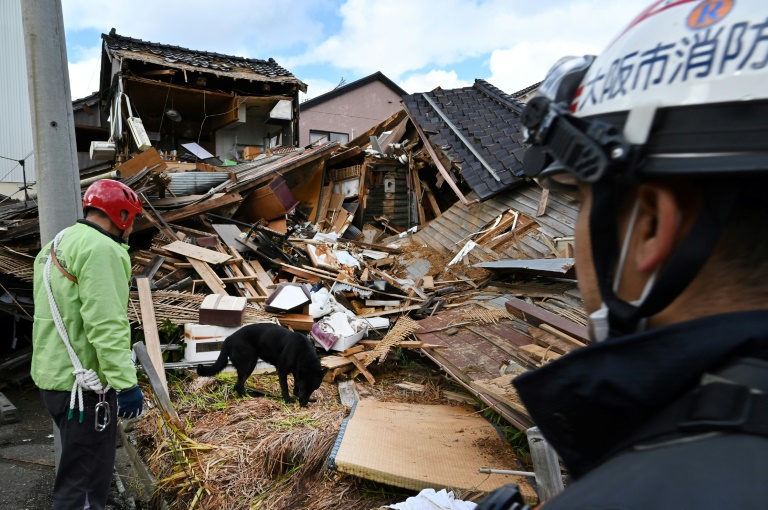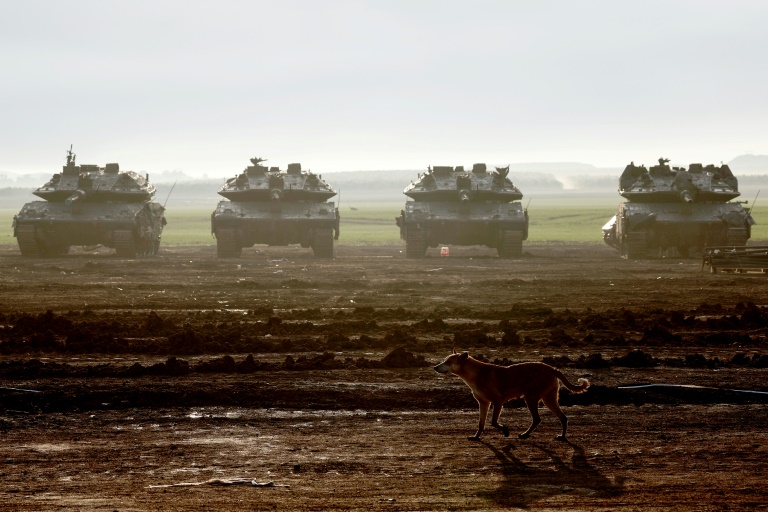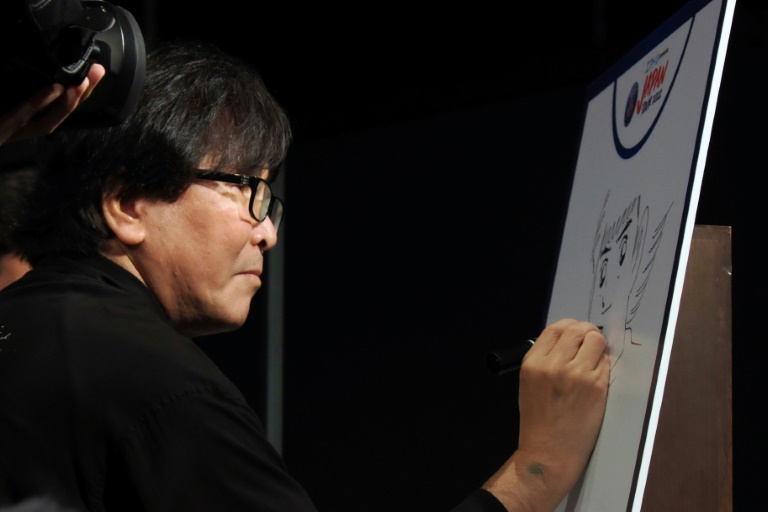Joining soldiers and firefighters in the desperate search for survivors after a huge earthquake in central Japan was rescue dog Elsa, described by her trainer as “the best of the best”.
Nimbly crossing loose roof tiles and splintered wooden beams, she sniffed through the wreckage of a destroyed wooden house in Wajima, one of the cities worst hit by the 7.5-magnitude earthquake on New Year’s Day.
Along with rescuers including Japanese troops, the large black dog with pointed ears was searching for an elderly woman possibly buried under the rubble of her home.
“Please Elsa, please find her,” came a voice from a crowd of neighbours and other relief workers watching their efforts, three days after the disaster struck.
The dog was brought to the coastal city by Yasuhiro Morita from his rescue dog training centre around 500 kilometres (300 miles) away in western Tottori region.
“She reacts to dead bodies when searching the rubble — she is trained to always bark when she finds a body,” Morita told AFP.
“But today, she just wandered off towards the bystanders instead, which likely means there was no body inside,” he said.
Morita described Elsa as “the best of the best in western Japan”, but she wasn’t the only mutt on the job — the defence minister announced Thursday that a rescue dog named Jennifer had found an elderly woman under the rubble who was pulled out and saved.
The ravaged house was just one of the devastating scenes in Wajima and other parts of Ishikawa on the Sea of Japan coast.
Strong aftershocks have shaken the region since Monday’s terrifying main tremor, which triggered landslides, a major fire and a tsunami more than a metre high.
As of Friday, 92 people had been confirmed dead in the disaster, with 242 others reported missing.
Wajima resident Hiroyuki Hamatani, 53, had been relaxing with his relatives when the quake struck.
“Things fell over and walls crumbled, and the entrance door also collapsed. The house itself is standing, but it’s far from liveable now,” he told AFP.
Water and food are scarce, as “supplies have hardly arrived yet, but I guess they’re on their way now”, he said.
“I don’t have the space in my mind to think about the future. Things are all scattered inside my house. More aftershocks could make it collapse, so I can’t go back just yet.”
On the approach to Wajima — a city of around 23,000 residents, known for its artisan lacquerware — tunnels were partially blocked by fallen boulders, and mountain surfaces had been left barren by landslides.
Flattened houses lined the route, with debris and snow dotting the sides of the road.
Even more shocking sights awaited those who made it into the city.
An imposing seven-storey building lay on its side, while fallen utility poles blocked a path surrounded by twisted wreckage.
“Is someone there? Answer us please!” a soldier was heard shouting while his team searched the ruins of a home for another missing resident, entering through broken windows.
The quake sparked a blaze that laid waste to an entire market area where 200 structures reportedly burned down.
There, the ground was blanketed in charred building materials, with burned-out cars sitting in front of a topsy-turvy backdrop of houses dislodged from their foundations.
Standing looking at the ruins was Shinichi Hirano, 47.
“This is where my grandma’s house used to be, but it’s all burned down,” he told AFP.
“She passed away a while ago, so her house has long been vacant, but still, this area is full of fond memories,” he said, reminiscing about a cake store and a barbershop he used to frequent as a child.
“But they’re all gone. I only see burned ruins now,” he said, with a sad smile on his face.
“It pains me” to see these familiar places decimated, Hirano said, adding: “I’m just speechless.”
An 80-year-old man, who declined to give his name, gazed on woefully as the pungent smell of soot wafted through the air.
Even three days after the earthquake, faint columns of smoke were still billowing here and there in the desolate city.
“I came to check on my relatives. I haven’t been able to see them yet,” the elderly man said.
“This is just terrible. There is no trace left,” he said.
“Terrible,” he repeated, sighing heavily at the sight. “It’s just like war.”
AFP
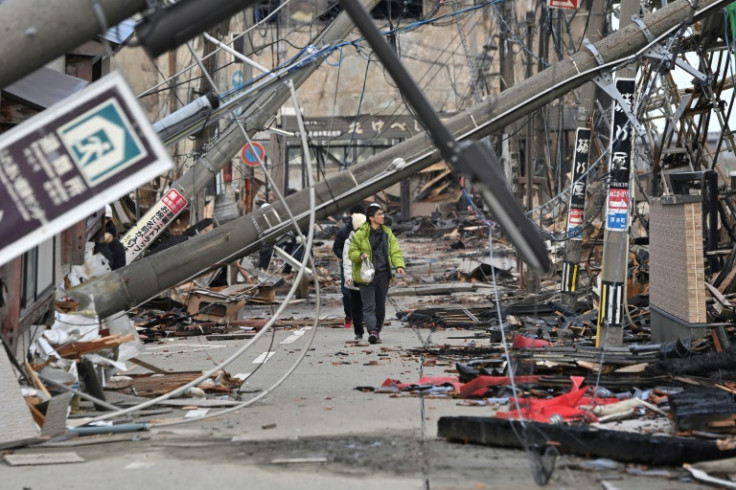
AFP
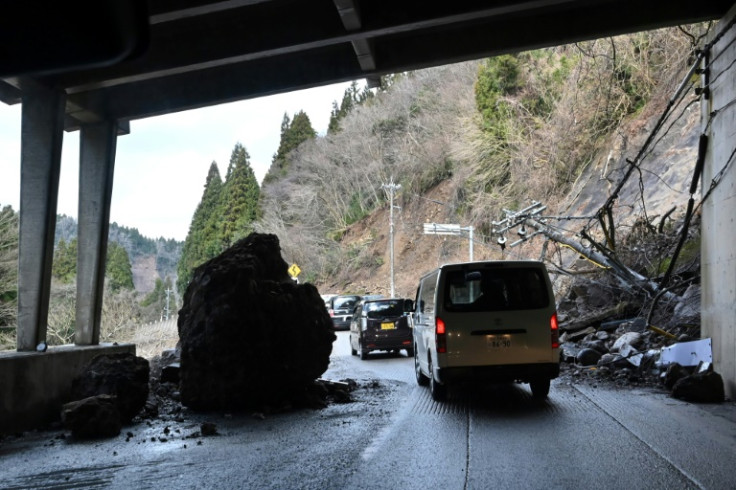
AFP
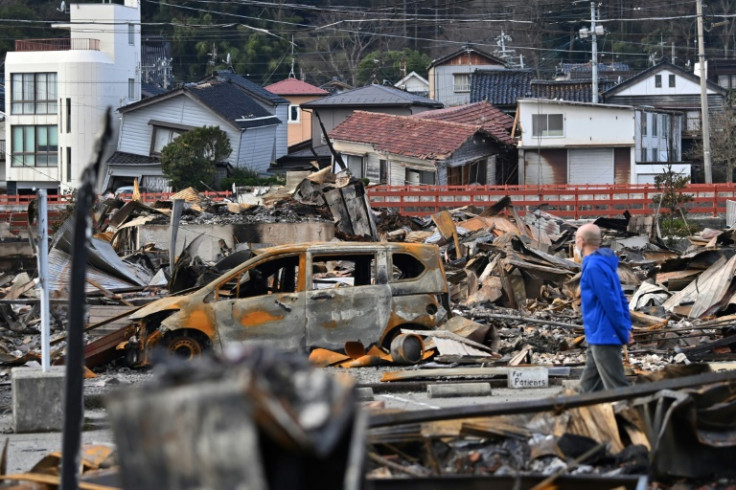
AFP
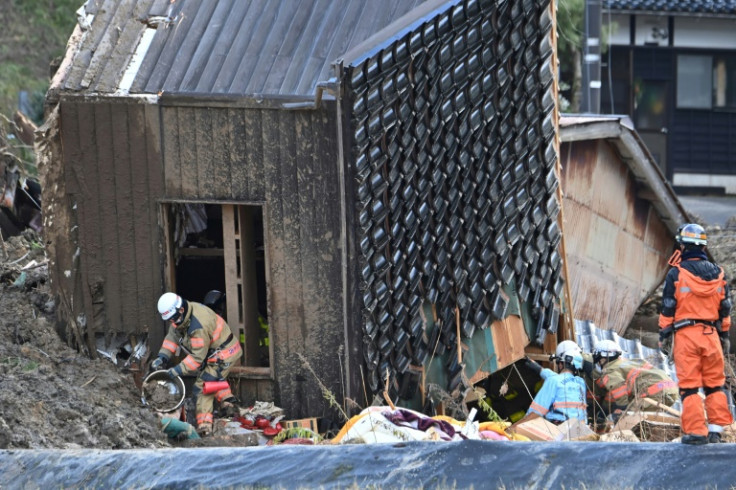
AFP
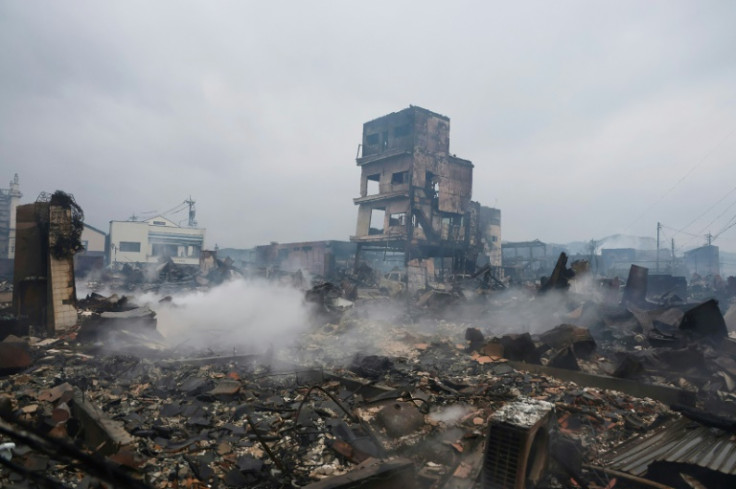
AFP

